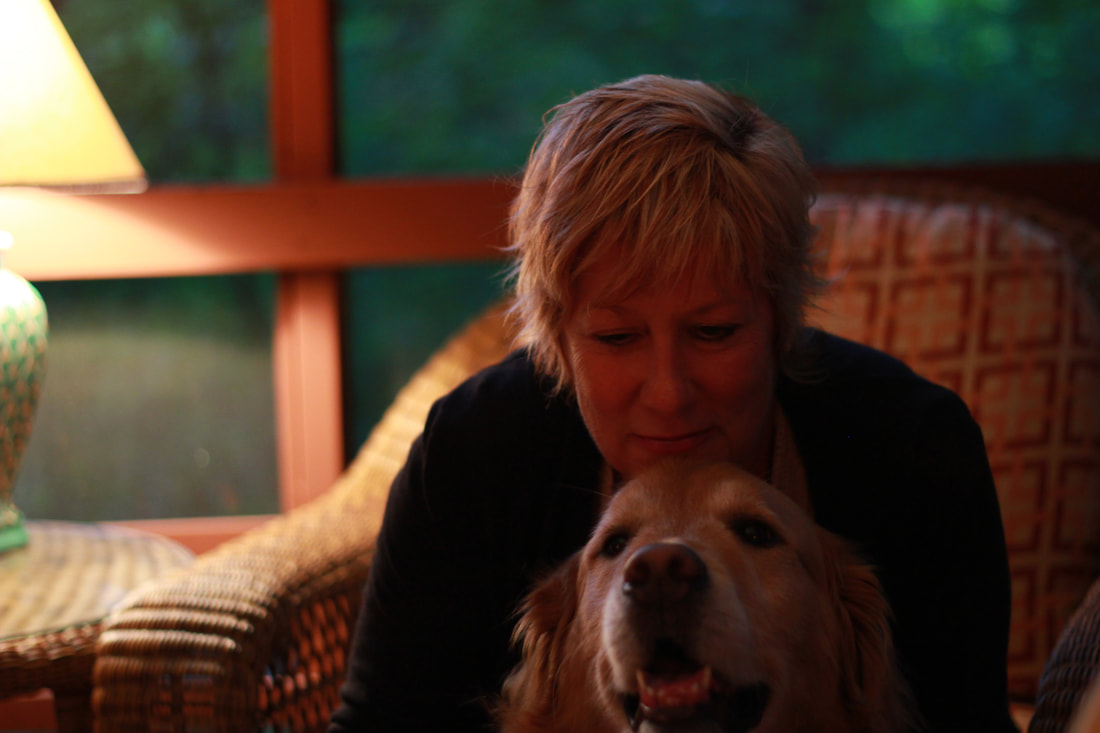ASSAY: A JOURNAL OF NONFICTION STUDIES
6.1
6.1
|
In the deserts of the heart
Let the healing fountain start –W.H. Auden, In Memory of W.B. Yeats In the last weeks since Ned’s death, I’ve been reminded of a man who used to mow paths at Sander Farm, 34 acres of open field down the street where I lived in Michigan. All the years I lived there, I never saw the mower. My husband once saw a figure pushing a hand mower at the top of the field early one Sunday morning. Before my husband made it up the crest, the man was gone, vanished into the screen of trees that bordered the uppermost part of the field. He’d cleared trails at every possible point of entry, trails that were about 5 feet across, enough room for a large dog and person or two people side by side. Without his mapping, Sander Farm would have been impenetrable. You’d need a machete to hack your way through. I never learned why he didn’t want to be seen or known; I just knew the mower by what his actions left behind. He didn’t want anyone to thank him or give him an award. It was just in his nature. I often wondered who would mow the fields after the mower. Would the grasses grow up and reclaim the field? Ned has been my mower—he has cut trails for me to follow. No one is simply a book reviewer; they aren’t born to be a book reviewer, they can’t support themselves writing book reviews alone. They are writers who take a turn at reviewing; they are editors who review, scholars in the field who write reviews, sometimes occasionally and sometimes regularly. For me, they are defined by providing a service to others, to the larger literary community, and often they are unsung and not nearly appreciated enough. There’s a long history of wringing our hands over the decline in book reviewing. It’s always been a difficult sell to get someone good to devote their time, energy, and skills on behalf of bringing light to someone else’s book. And in this age of self-promotion, it’s even harder. Ned was many things in his too-short life. When I met him he was an assistant professor in the English Department at Florida State University, a scholar-practitioner, publishing his own excellent creative nonfiction essays, but primarily a scholar in the field of 20th-century American literature and culture with a specialization in literary nonfiction who would go on to publish The American Essay in The American Century (University of Missouri Press, 2011) and edit with Carl Klaus Essayists on The Essay: Montaigne to Our Time (University of Iowa Press, 2012). Anyone with a passing knowledge of Ned knows that the hallmark of his contribution was his deep knowledge of the history of the essay. It was a foundational tenet that ran through everything Ned wrote or oversaw as a reviewer that one must be grounded in the essay’s past. At the time of his death, he was the Director of FSU Certificate Program in Publishing & Editing. One of the first and most important decisions I had to make upon becoming the editor of Fourth Genre in 2007 was finding a replacement for our long-time book review editor Jocelyn Bartkevicius, who was leaving to take the helm of The Florida Review. She had been the book editor from the beginning and set the tone and purpose, an orientation Ned continued. Fourth Genre valued the individualized approach in everything it did and book reviews were no exception. Our policy was that a book review would be treated much like a personal essay, expecting the review to reflect the writer’s style, personality, and way of thinking about art and the world. In addition, it took a stance in avoiding the two extremes of book reviewing—the sham review in the form of promotion or the too mean review that is interested in performing a slap-down. It was incumbent upon the book review editor, Ned, to take care in matching the right reviewer to the book to insure that our values were embodied in the reviews. We cut the capsule reviews and made the full-length reviews pay attention to a more diverse group of books. In a bid to address the growing innovations in the field of literary nonfiction, we also created two new sections, Essay and Self Reflection, in which an author of an essay muses upon its history, and Writer as Reader. Not only did Ned oversee the reviews for Fourth Genre but he wrote reviews himself characterized by depth of engagement, fairmindedness, humility, intelligent placing of the book within its literary tradition, and an openness to grasp what the writer is up to and meet them half-way. But instead of talking about those reviews, I’d like to look at a review that breaks from the conventional predictability of the book review’s format to do something new, something that might provide a model for the future life of book reviewing. In the Fall of 2017, Issue 19.2, Fourth Genre included a review of Molly Brodak’s Bandit: A Daughter’s Memoir in the form of a conversation between Anne Panning and Ned who knew each other and were well versed with one another’s writing. The title itself Criminal: A Conversation & Review intrigued me, conjoining two categories of writing to create a new third one. Their familiarity produces a lively, intimate informality that drew me in immediately and made me interested in the book under review to see what these experienced reader/writers would make of it. It became clear that one of the tenets of Fourth Genre’s policy would be upheld: they both were enthusiastic about the book and the review would be about why. “I was so glad to hear you liked this wonderful book, Anne, and were up for a conversation about it.” While the review’s form is the give and take of conversation, Ned folds in the nuts and bolts we expect of reviews—he introduces the memoir and its author, how for example, Brodak is a poet, and how the book is structured in 82 short chapters, and yet he frees the information from its summary status and animates its inclusion. He locates the memoir along the current trends by saying it “seems to me a model of a lyrical memoir in the sense that is organized poetically. It is not, however, as I read it, a ‘lyrical’ memoir as far as its relationship to facts and truth.” Then he kicks the topic to Anne as something open to discussion. Anne and Ned tussle trying to characterize Bandit—how she handles the facts of her father’s true crime history of bank robbing with the demands of art and storytelling using D’Agata ‘s split between art and facts as the touchstone. Here is where Ned really breaks with the conventions of book reviewing and it’s thrilling. Instead of the singular voice of the expert sharing their conclusions and evaluations about a book, using the form of conversation makes it seem as if the reviewers are in real time grappling with the book rather than making conclusions about it. There’s the possibility someone could change their mind by what the other has said. It foregrounds how we read through our own needs and particularities as people. In this case we see how writers read other writers. They expand the traditional confines of the review’s parameters by asking each other about their own families and how they’ve handled that history in memoir. Bringing in their own histories allows Anne and Ned to ask what memoirs do, what they are. “Ned, “ Anne says at one point, “I’m so glad you brought up your own experiences with your parents here because isn’t that, after all, what good memoirs do? Encourage readers to connect with others’ struggles?” They use Bandit as a springboard to think more deeply about the genre itself. Ned has reanimated a form that risks at every moment going stale and unread. For Anne and Ned understanding Bandit together is a way of establishing its value and its use, and really, isn’t that what a book review should do? This is one of the paths Ned has cleared for us—showing us how to make something old new, how to make something that can be pro forma personal and alive, how to praise. |
Continue Reading...
|
|
|
Marcia Aldrich is the author of Girl Rearing, published by W.W. Norton. She has been the editor of Fourth Genre: Explorations in Nonfiction. Companion to an Untold Story won the AWP Award in Creative Nonfiction. She is the editor of Waveform: Twenty-First-Century Essays by Women published by The University of Georgia Press.
|

